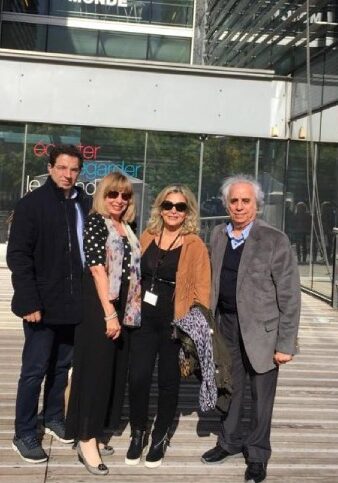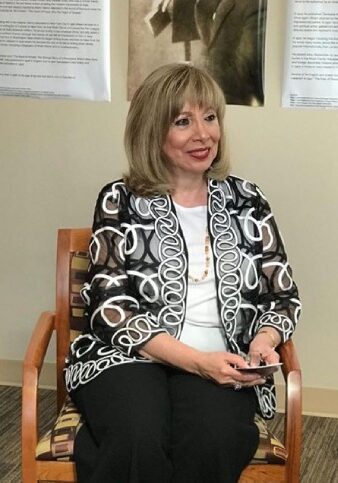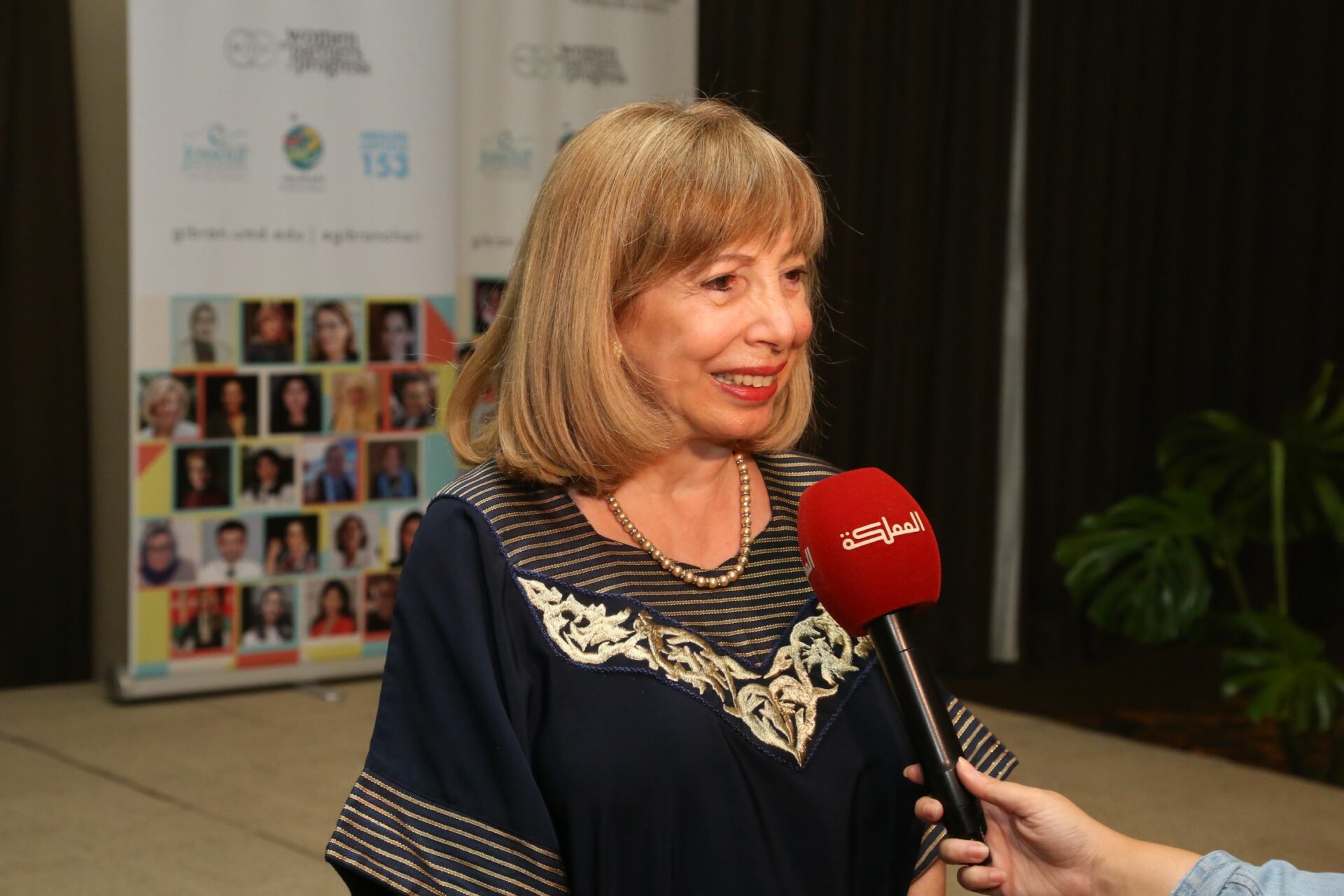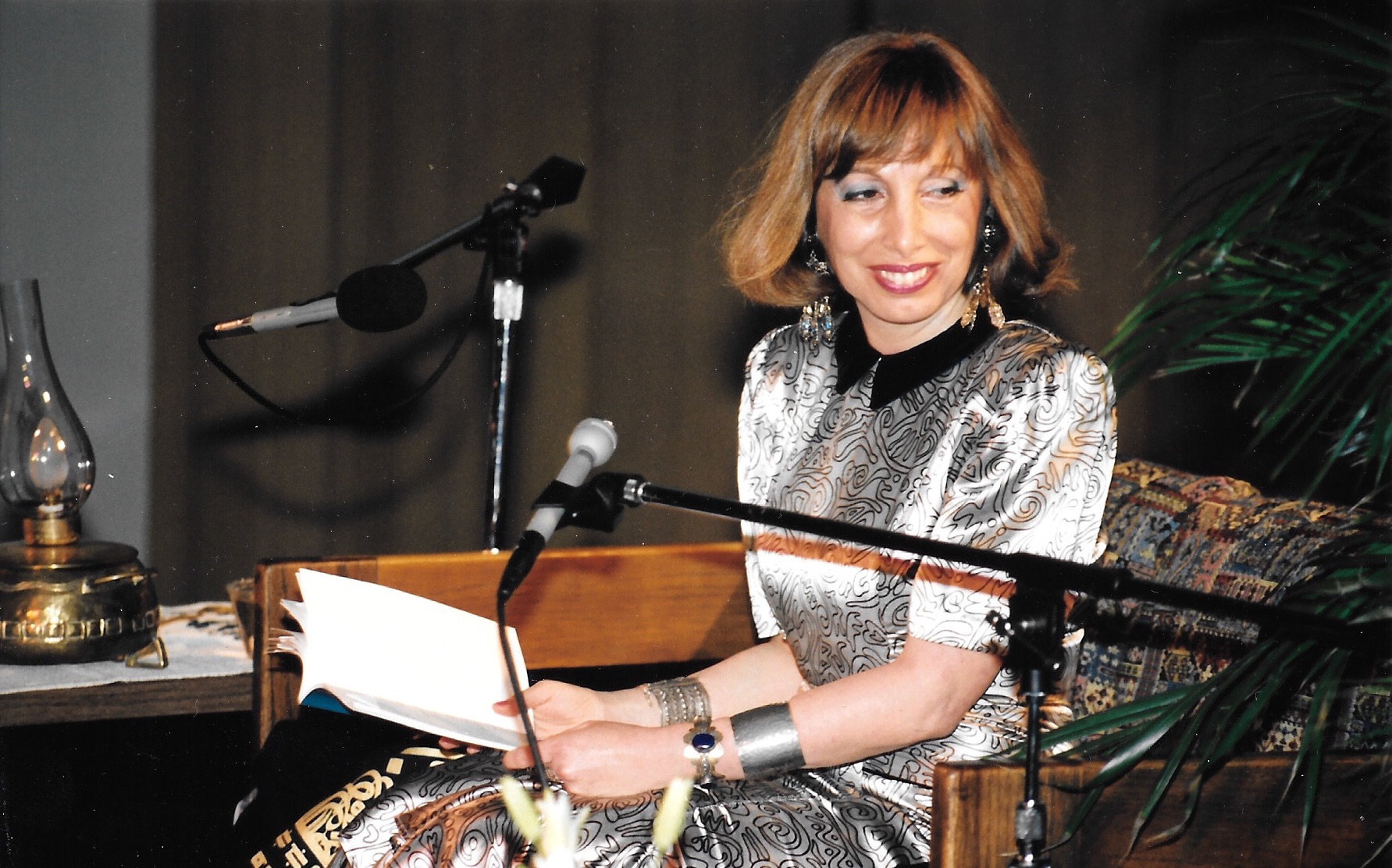Media
Radio Interviews
- Arabian Candles - They Dared documentary premiere - Interview with Sameer Haddad(December 2019)
- Monte Carlo Radio - May Rihani interviewed by Gaby Lteif
- Monte Carlo Radio - Gibran Conference Interview (October 2019)
- _ Arabian Candles - The Hub_launch [ _ - Interview with Sameer Haddad_ |https://soundcloud.com/sabeel-media/arabian-candles-september-26#t=30:36] (September 2019)
- Interview I - BBC News Arabic - WPP Conference(August 2019)
- Henri Zghaib reviews Cultures Without Borders for the Voice of Lebanon (in Arabic, January 2015)
- Interview with May in Arabic by Anna Abdel Massih for Radio Sawa, which broadcasts from Washington DC, Dubai, and the United Arab Emirates (Nov 2014)


- “The Possibility of Today” radio show hosted by Sibyl Chavis seeks to answer the question about practical things listeners can do to find meaning in their lives. “Can you figure out your purpose in life? Yes, and that’s what we are talking about on today’s show with May Rihani.” Possibility of Today with May Rihani - Sybil Chavis
- Stu Taylor interviews May Rihani (Nov 2014)
- Stu Taylor interviews May Rihani
- AuthorTalk radio discusses Cultures Without Borders with May in this informative 19-minute interview (Oct 2014)
- AuthorTalk Interview with May Rihani
Arabic & French Media
- مي الريحاني خطيبة ذكرى مولد مارتن لوثر كنغ – النهار ( An-Nahar: May Rihani is Keynote speaker at MLK Day celebration)
- An-Nahar released on Issam Fares Center panel discussion on “Cultures Without Borders” in Sin-el-Fil on July 15, 2015
- Lebanon National New Agency release about the Issam Fares Center talk
- L’Orient – Le Jour on “Cultures Without Borders,” 14-May-2015
- Sharq al-Awsat Book Review, حضارات بلا حدود – April 1 2015
- Al-Anwar review by Zghaib
- Al-Jazeera review by Marah Bukai, Dec 2014
- Article from the Beirut L’Orient-Le Jour daily
- National News Agency, Lebanon
- Al-Mustaqbal, Iraqi daily
- Al-Safir, Lebanon
- Al-Anwar, Lebanon
- Al-Hayat, Lebanon
- An-Nahar, Lebanon
Television Interviews
May Rihani interview on “Cultures Without Borders” is aired on “PBS’ “To the Contrary”, hosted by Bonnie Erbe. [4:24].
Interview by Al Jazeera with May Rihani in Washington, DC, on the topic of the role of Arab women intellectuals. [in Arabic, 12:22)


What the Media Is Saying
French-language review of Cultures Without Borders notes, “La femme de lettres et femme d’action, l’auteure a fait rayonner cette dualité de par le monde à partir des États-Unis, boostée par l’esprit de son village d’origine.” Read more here
An opinion piece entitled, “Gender equality in education is the smartest way to defeat extremism,” was published in the Christian Science Monitor on March 16, 2015.
A report in the Merida, Yucatan press in Mexico
covers the December 30th lecture on “Cultures Without Borders”
and book signing at the new Mayan World Museum.
May’s presentation generated serious questions from members of the audience,
including local government education and gender equity specialists.
Beirut French daily newspaper, L’Orient-LeJour, 25 November 2014
(see Media box at left for full report)
May Rihani défie les stéréotypes dans « Cultures sans frontières »
« Cultures sans frontières » (éditions AuthorHouse USA) est le nouvel ouvrage de May Rihani. C’est l’histoire d’une Libanaise qui défie les stéréotypes de l’Occident concernant la femme arabe.
C’est l’histoire d’une jeune fille qui a grandi pendant la période dorée du Liban des années 1950 à 1975 quand ce pays était la seule démocratie du Moyen-Orient, où les médias pouvaient critiquer son président ainsi que beaucoup d’autres, où personne n’était emprisonné pour ses opinions politiques, et où les musulmans et les chrétiens vivaient en paix. C’est aussi l’histoire de la découverte d’un socle commun à toutes les cultures. L’auteure, qui a vécu en France et aux États-Unis, et qui a voyagé et travaillé dans plus de 40 pays, a découvert que ce socle commun à toutes les cultures était bien plus important que les différences apparentes, et que plus les êtres humains comprenaient, reconnaissaient et faisaient cas de ce socle commun, plus ils devenaient citoyens du monde. Le livre traite des cultures américaine et arabe décrivant leurs points de rencontre, leur chevauchement et leurs divergences. L’auteure croit cependant que la reconnaissance de la porosité des frontières culturelles a pour résultat une diminution possible des guerres et une probabilité de paix plus grande…
Earlier Coverage
The Daily Star newspaper, Beirut, November 2000 article by Nada Al Awar, asked about the book she hoped to publish:
Yet despite all the words and all the countries and all the longings in her heart, Rihani says she has still not written the book she has always wanted to. It is a future work that is still growing and developing within her, and one which will help her articulate her own ideas about being a citizen of the world. Rihani says, in that future book, “I hope to communicate to my readers a deeper understanding of how similar we all are.” Rihani explains: “After all, we are nothing but brothers and sisters with the same joys and the same sorrows.”
The Washington Post, October 27, 1999, article by Judy Mann, “Educated Girls Can Help Heal Broken Nations”:
One of the first steps in setting up a school is to form those women’s education committees. The most important principle is to involve them at all levels— whether they are literate or illiterate, Rihani said. She spent two hours talking with committee members … “I challenged them to tell me why girls’ education is important. I heard: ‘Until we sent our girls to school, we did not see changes in our lives. Once we sent them, we started seeing changes in our lives.’”
One mother told her that by creating the education committee, the women in the community got their first taste of power. “Our voices have been heard by the school and by the teachers, [as well] as by the representatives of the government, so we women are gaining power,” the mother told Rihani. Another woman said, “Now they hear our voices on the schooling of our daughters, they will have to hear our voices on other things.”
An-Nahar newspaper, Beirut, Fall of 1992, article by Henri Zghaib about May Rihani’s last book of poetry, Encircling the Waist of the Earth:
May Rihani arrived in Washington bringing with her a sensitive poetic lens and the Rihani heritage. With this, she started her global journey… The human being in May’s poetry is an international citizen… May’s poetry is about world issues and human suffering, and about the connection among many parts of the world.